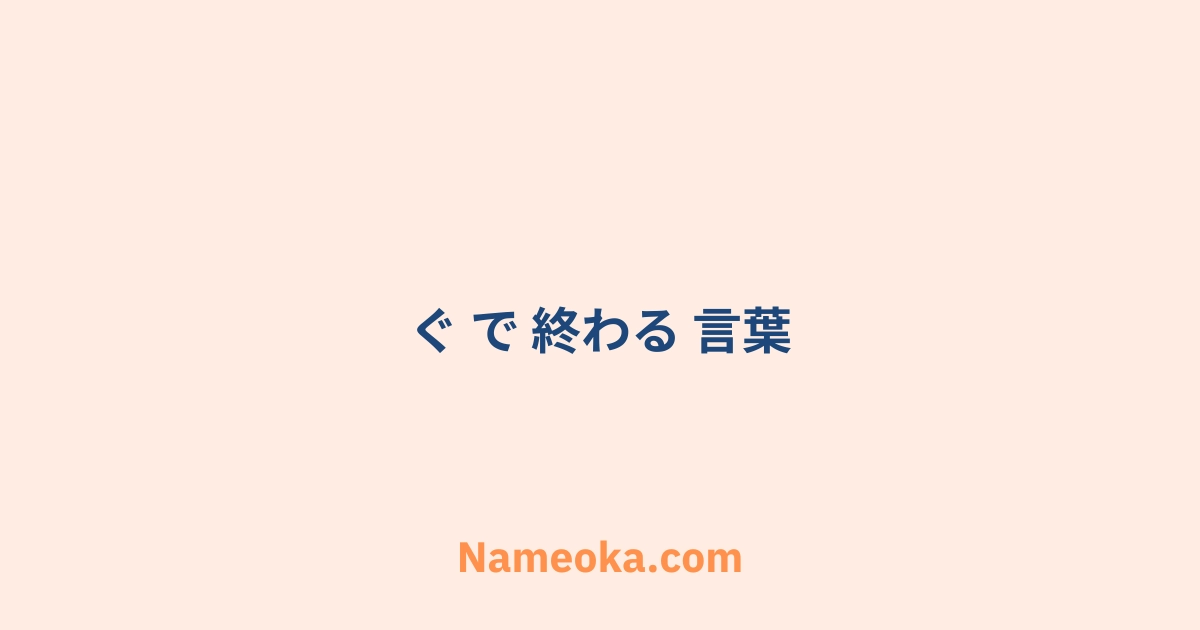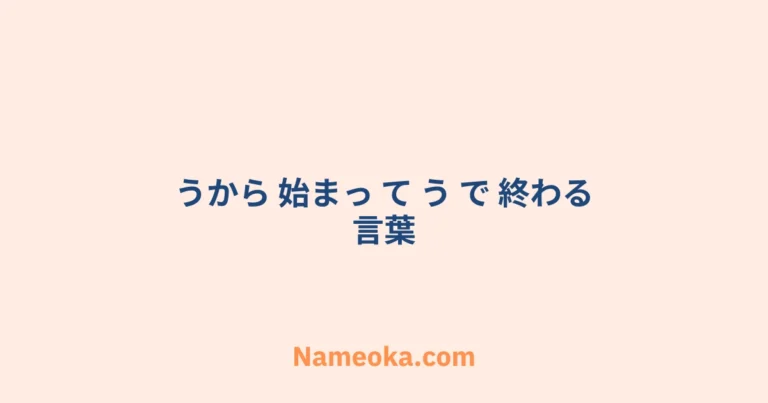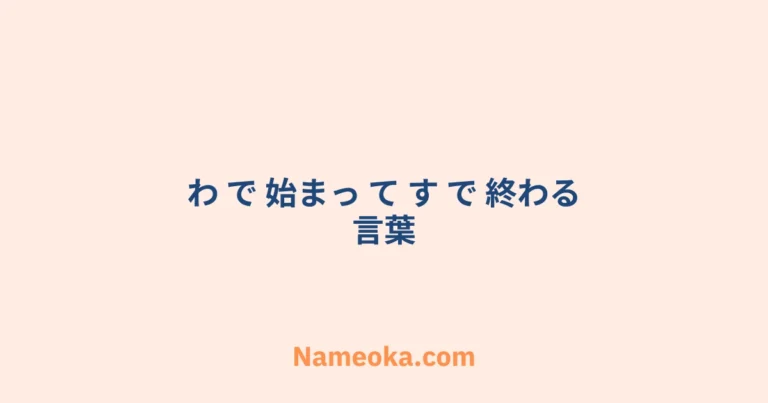日本語には独特なリズムを持つ言葉が数多く存在します。その中でも「ぐ」で終わる言葉は、親しみやすく、会話や文章にリズムや楽しい響きを生み出します。この特徴的な言葉のグループには、日常生活でよく耳にするものから少し珍しいものまで、バラエティ豊かなものがあります。このような語尾のバリエーションは、日本語の奥深さを感じさせ、興味を引くものです。この記事では、「ぐ」で終わる言葉について詳しく探り、その魅力を最大限に引き出していきます。.

51+ ぐ で 終わる 言葉
- 1. 草むらで
- 2. 靴で
- 3. 船で
- 4. 部屋で
- 5. 友達で
- 6. 野原で
- 7. 自転車で
- 8. 空で
- 9. 部活で
- 10. 森で
- 11. 工場で
- 12. 動物園で
- 13. 図書館で
- 14. 市場で
- 15. 試合で
- 16. バスで
- 17. 鉄道で
- 18. 授業で
- 19. 駅で
- 20. 教室で
- 21. イドで
- 22. プールで
- 23. 広場で
- 24. アパートで
- 25. 旅館で
- 26. 庭で
- 27. 飲み会で
- 28. 学校で
- 29. 秋で
- 30. 旅で
- 31. 海外で
- 32. 空港で
- 33. 地震で
- 34. 映画館で
- 35. アルバイトで
- 36. 湖で
- 37. 大学で
- 38. 水族館で
- 39. コンビニで
- 40. デパートで
- 41. カフェで
- 42. 展覧会で
- 43. ラジオで
- 44. テレビで
- 45. 次で
- 46. 帰宅で
- 47. 祭りで
- 48. 夕食で
- 49. 食事で
- 50. 電話で
- 51. 運動で
- 52. 散歩で
ぐ-Ending Verbs In Japanese Language
In Japanese, verbs that end with “ぐ” are part of the Godan verb group, also known as Group 1 verbs. The base form of these verbs ends in “ぐ”, and they conjugate slightly differently than verbs in other groups. Here are some common examples of “ぐ” ending verbs and how they conjugate in various forms:
- 泳ぐ (およぐ) – to swim
- Dictionary Form: 泳ぐ (およぐ)
- Masu Form: 泳ぎます (およぎます)
- Te Form: 泳いで (およいで)
- Negative Form: 泳がない (およがない)
Past Form: 泳いだ (およいだ)
脱ぐ (ぬぐ) – to take off (clothing)
- Dictionary Form: 脱ぐ (ぬぐ)
- Masu Form: 脱ぎます (ぬぎます)
- Te Form: 脱いで (ぬいで)
- Negative Form: 脱がない (ぬがない)
Past Form: 脱いだ (ぬいだ)
急ぐ (いそぐ) – to hurry
- Dictionary Form: 急ぐ (いそぐ)
- Masu Form: 急ぎます (いそぎます)
- Te Form: 急いで (いそいで)
- Negative Form: 急がない (いそがない)
- Past Form: 急いだ (いそいだ)
When conjugating “-ぐ” ending verbs, it’s important to remember that the “ぐ” changes to “いで” in the te-form, and to “いだ” in the past form. For the negative form, “ぐ” changes to “が” before adding “ない”. These patterns are consistent across all “ぐ” ending verbs in Japanese.
The Role Of ‘ぐ’ In Japanese Onomatopoeia
In Japanese onomatopoeia, “ぐ” often appears in words that convey a sense of heaviness, toughness, or firmness. Onomatopoeic expressions in Japanese, or “giseigo” (擬声語) and “gitaigo” (擬態語) for non-auditory sounds, are frequently used to describe sounds, actions, and states. The “ぐ” sound can impart a feeling of density or intensity.
Here are a few examples:
ぐっすり (gussuri) – This onomatopoeic word is used to describe someone sleeping soundly and deeply.
ぐちゃぐちゃ (guchagucha) – Used to describe something that is messy or in a state of disarray, often with a wet or squishy connotation, like a squashed tomato.
ぐるぐる (guruguru) – Used to denote something spinning around continuously.
ぐんぐん (gungun) – Used to describe doing something with rapid progress or intensifying, like “growing rapidly.”
These expressions capture various sensations and actions vividly using sound symbolism, and “ぐ” contributes a specific nuance depending on the context of the word.
Common Phrases And Expressions Ending With ぐ
Certainly! Here are some common Japanese phrases and expressions that end with the syllable “ぐ” (gu):
- 泳ぐ (およぐ) – Oyogu
Meaning: To swim
防ぐ (ふせぐ) – Fusegu
Meaning: To prevent or to defend
急ぐ (いそぐ) – Isogu
Meaning: To hurry
嗅ぐ (かぐ) – Kagu
Meaning: To smell (something)
繋ぐ (つなぐ) – Tsunagu
Meaning: To connect or to tie
騒ぐ (さわぐ) – Sawagu
Meaning: To make noise or to be noisy
焼く (やく) / 焼ける (やける) when informal – Yaku/Yakeru
Meaning: To burn or to cook
脱ぐ (ぬぐ) – Nugu
- Meaning: To take off (clothes)
These verbs generally convey actions and are an essential part of everyday language in Japanese, often used in various contexts and combined with other grammatical forms to express different nuances.
よくある質問
ぐで終わる言葉にはどのようなものがありますか?
ぐで終わる言葉には、日本語で日常的に使われているものがいくつかあります。たとえば、家でくつろぐという表現の際に使う”くつろぐ”や、困っている誰かを手助けしようとする気持ちの”たすける”があります。.
ぐで終わる言葉をもっと知りたい場合、どうすればいいですか?
ぐで終わる言葉をさらに知りたい場合は、日本語の辞書を活用するのが良いでしょう。また、オンライン検索で例を調べると、リストや頻出する単語を簡単に見つけることができます。.
子供向けにぐで終わる言葉を学ぶにはどうしたらいいですか?
子供向けにぐで終わる言葉を学ぶためには、カタカナを含む童話や絵本を読むのが効果的です。また、言葉遊びを通して自然に覚えることもできますし、リズミカルな歌や詩などを利用すると楽しみながら学ぶことができます。.
ぐで終わる言葉を使った文章例を教えてください。
ぐで終わる言葉を使った文章の例としては、”彼は犬と一緒に公園を駆け回る”や”彼女は一人静かに部屋でくつろぐ”があります。これらは日常会話や文章作成でよく用いるフレーズです。.












